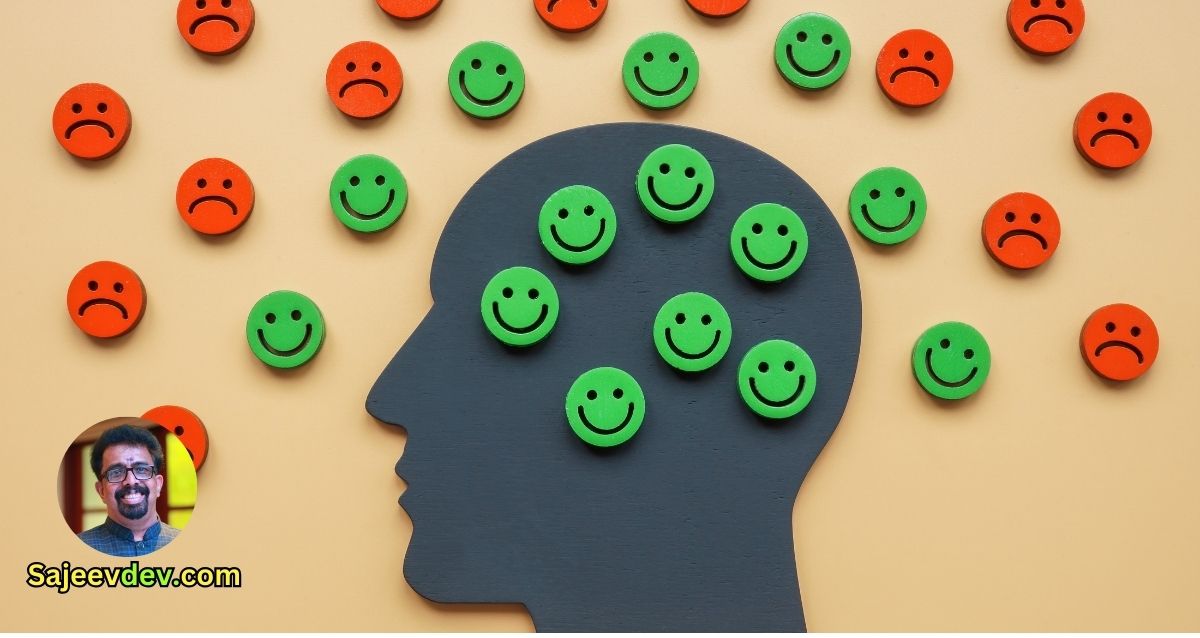Negative Influences
Negative influences are ubiquitous in modern life, often subtly permeating our mental, emotional, and physical well-being. These influences can manifest in various forms, including toxic relationships, hostile environments, and detrimental habits. Recognizing these sources of negativity is the first crucial step toward mitigating their impact and fostering a healthier, more fulfilling life.
Negative influences can significantly affect our mental health, leading to increased stress, anxiety, and depression. They can distort our perception of reality, resulting in a persistent negative outlook and diminished self-esteem. This, in turn, affects our emotional stability, making it harder to navigate daily challenges and maintain positive relationships.
On a physical level, the repercussions of negative influences are equally profound. Chronic stress and anxiety can lead to a host of health issues, including high blood pressure, weakened immune function, and sleep disturbances. Moreover, negative environments and habits, such as sedentary lifestyles or poor dietary choices, can further exacerbate these physical ailments.
The importance of identifying and reducing negative influences cannot be overstated. By acknowledging the people, environments, and habits that contribute to negativity in our lives, we can take proactive steps to limit their impact. This process involves setting boundaries, fostering positive relationships, and cultivating healthier habits. Ultimately, addressing these influences is essential for overall well-being and personal growth.
This blog post aims to delve deeper into the various sources of negative influences and provide practical strategies for reducing their impact. By understanding and addressing these elements, we can create a more positive, supportive environment for ourselves, leading to enhanced mental, emotional, and physical health.
Identifying Negative People in Your Life
Recognizing toxic relationships and individuals who bring negativity into your life is crucial for maintaining mental health and happiness. Toxic people often exhibit behaviors such as constant criticism, manipulation, and an overall negative demeanor. These behaviors can subtly erode your self-esteem and create a pervasive sense of unhappiness.
Constant criticism is a common trait of negative individuals. They may frequently belittle your achievements, point out your flaws, and make you feel inadequate. This type of behavior can lead to self-doubt and a significant decrease in your self-worth. It’s important to differentiate between constructive criticism, which is aimed at helping you improve, and destructive criticism, which is intended to undermine your confidence.
Manipulation is another hallmark of toxic relationships. Manipulative people often use guilt, gaslighting, and other psychological tactics to control you and make you question your reality. They may play the victim or shift blame to avoid taking responsibility for their actions. Recognizing these patterns is essential for protecting your mental well-being.
Overall negativity can also be a clear indicator of toxic individuals. They may constantly complain, focus on the worst aspects of any situation, and spread pessimism. Their negative outlook can be contagious, affecting your mood and mental health. Surrounding yourself with such negativity can lead to increased stress and anxiety, further impacting your overall happiness.
The importance of setting boundaries with negative people cannot be overstated. Establishing clear limits on what behaviors you will tolerate helps protect your mental space and emotional health. If necessary, distancing yourself from toxic individuals may be the best course of action. While it may be difficult, prioritizing your well-being is essential for a healthier, more positive life.
Evaluating Negative Environments
Negative environments can have a profound impact on an individual’s mental and emotional well-being. Toxic workplaces, stressful home situations, and unwelcoming social settings are common sources of negativity that may significantly affect one’s mood and overall health. Recognizing and evaluating these environments is the first step towards mitigating their adverse effects.
In a toxic workplace, for instance, constant stress, unrealistic expectations, and lack of support can lead to burnout and decreased productivity. Assessing the work environment involves identifying key stressors, such as poor management, unhealthy competition, or inadequate resources. Once identified, it may be beneficial to address these issues directly with management, seek support from human resources, or consider exploring new job opportunities if the situation does not improve.
Similarly, a stressful home environment can stem from various factors, including familial conflicts, financial strain, or a lack of personal space. Evaluating the home setting requires honest communication with family members, setting boundaries, and creating a more harmonious living space. Simple changes, like designating a quiet area for relaxation or organizing communal spaces, can significantly reduce household stress.
Unwelcoming social settings, such as cliques or negative peer groups, can also contribute to a sense of isolation and low self-esteem. To assess social environments, reflect on how interactions with certain individuals or groups make you feel. If these relationships are predominantly draining or demoralizing, it may be wise to distance oneself and seek out more supportive and positive connections. Joining clubs, attending community events, or engaging in hobbies can introduce new, uplifting social opportunities.
Ultimately, evaluating and addressing negative environments involves a combination of self-awareness, proactive measures, and sometimes, difficult decisions. By taking steps to alter physical spaces or seek new environments, individuals can significantly improve their mood and overall well-being, fostering a more positive and healthy lifestyle.
Recognizing Negative Habits
Identifying personal habits that contribute to negativity is a crucial step in limiting negative influences in your life. Common negative habits include procrastination, negative self-talk, and unhealthy lifestyle choices. These habits, often ingrained in daily routines, can significantly impact emotional and mental well-being.
Procrastination, for instance, often leads to stress and anxiety as tasks pile up, creating an overwhelming sense of pressure. It undermines productivity and can result in missed opportunities and deteriorating self-esteem. Negative self-talk, characterized by critical inner dialogue, can erode confidence and foster a pessimistic outlook. This internal negativity can perpetuate a cycle of self-doubt and hinder personal growth.
Unhealthy lifestyle choices, such as poor diet, lack of exercise, and insufficient sleep, also contribute to a negative state of mind. These habits can affect physical health, leading to fatigue and other health issues, which in turn impact mental health. Recognizing the connection between lifestyle choices and overall well-being is essential in mitigating negativity.
Self-awareness and reflection are fundamental in recognizing these negative habits. Taking time to analyze daily routines and behaviors can reveal patterns that contribute to negativity. Journaling, mindfulness practices, and seeking feedback from trusted individuals can aid in this self-discovery process. Understanding the impact of these habits on your life is the first step towards change.
Introducing the concept of habit change is pivotal. Instead of focusing solely on eliminating negative habits, it is beneficial to adopt positive routines. For example, replacing procrastination with time management techniques, transforming negative self-talk into positive affirmations, and incorporating healthier lifestyle choices can create a more positive outlook. The benefits of adopting positive habits include improved mental clarity, increased energy levels, and enhanced emotional resilience.
By recognizing and addressing negative habits, individuals can significantly reduce sources of negativity in their lives. This proactive approach fosters a healthier, more positive environment, conducive to personal growth and well-being.
Strategies for Reducing Negative Influences
Reducing negative influences in one’s life involves identifying and taking deliberate actions to mitigate their impact. One of the most effective strategies is setting clear boundaries. Establishing limits with individuals or situations that contribute to negativity can significantly improve your mental and emotional well-being. Clearly communicate your boundaries and stick to them, ensuring that others respect your need for a more positive environment.
Another essential step is seeking support from trusted individuals. Whether it’s friends, family, or professional counselors, having a reliable support system can help you navigate and reduce negative influences. These supportive relationships can provide perspective, encouragement, and practical advice, making it easier to implement changes in your life.
Making gradual changes is also crucial in this process. Rather than attempting to overhaul all negative influences at once, focus on small, manageable adjustments. This approach prevents overwhelm and allows you to build momentum as you see positive changes take effect. Start by addressing the most harmful influences and work your way through less significant ones over time.
Additionally, fostering a positive and supportive atmosphere involves actively seeking out environments and relationships that uplift and inspire you. Engage in activities that bring joy and fulfillment, and surround yourself with individuals who encourage and support your growth. This proactive approach not only reduces negative influences but also enhances your overall quality of life.
Lastly, practicing self-awareness and mindfulness can help you better understand how negative influences affect you and identify when they arise. By being more attuned to your thoughts and emotions, you can more effectively implement strategies to counteract negativity and maintain a balanced, positive outlook.
Incorporating these strategies into your daily routine empowers you to take control of your environment and relationships, fostering a more positive and supportive atmosphere in your life.
Cultivating Positive Relationships
Surrounding oneself with positive, supportive individuals is a crucial factor in limiting negative influences and promoting personal well-being. Positive relationships act as a buffer against stress and negativity, providing emotional support, encouragement, and a sense of belonging. Identifying and nurturing these relationships can significantly influence one’s mental and emotional health.
To cultivate positive relationships, start by identifying individuals who consistently bring joy, motivation, and growth into your life. These are people who celebrate your successes, offer constructive feedback, and stand by you during challenging times. Their presence is marked by mutual respect, trust, and a genuine interest in your well-being.
Building a supportive network involves actively seeking out and engaging in meaningful interactions. Participate in community activities, join clubs or groups that align with your interests, and attend events where you can meet like-minded individuals. These environments foster connections with people who share your values and aspirations, making it easier to form positive relationships.
Maintaining healthy relationships requires ongoing effort and communication. Regularly check in with your friends and loved ones, offering support and appreciation for their role in your life. Be open and honest in your interactions, and address conflicts with empathy and a willingness to understand different perspectives. This approach strengthens bonds and ensures that your relationships remain resilient and enriching.
Additionally, setting boundaries is essential in maintaining a positive network. Recognize when a relationship is draining or detrimental to your well-being, and take steps to address or distance yourself from such influences. Prioritize relationships that uplift and inspire you, and invest your time and energy in nurturing these connections.
In conclusion, cultivating positive relationships involves identifying supportive individuals, engaging in meaningful interactions, and maintaining healthy communication and boundaries. By surrounding yourself with positive influences, you create an environment that fosters personal growth, happiness, and resilience against negativity.
Creating a Positive Environment
Establishing a positive environment is crucial for reducing sources of negativity in your life. One effective way to start is by decluttering your physical space. A tidy, organized environment can significantly enhance your emotional well-being. Begin by removing items that no longer serve a purpose or bring joy. This process can foster a sense of accomplishment and clarity, paving the way for a more positive atmosphere.
Incorporating elements that inspire happiness is another important step. Consider adding plants to your living or workspace; they not only purify the air but also create a calming and inviting ambiance. Art can also play a substantial role in uplifting your mood. Choose pieces that resonate with you and evoke positive emotions. These elements can transform your environment into a sanctuary of positivity.
Creating dedicated spaces for relaxation and creativity is equally important. A cozy reading nook, a corner for meditation, or a workspace designed to spark creativity can all contribute to a more positive environment. These spaces provide a retreat from daily stressors and encourage activities that promote well-being.
Mindfulness and gratitude are essential practices in fostering a positive atmosphere. Mindfulness involves being present in the moment and fully engaging with your surroundings and activities. This practice can help you become more aware of negative influences and allow you to address them effectively. Gratitude, on the other hand, involves recognizing and appreciating the positive aspects of your life. Regularly reflecting on what you are grateful for can shift your focus from negativity to positivity, enhancing your overall outlook.
By integrating these strategies, you can create and maintain a positive environment that supports your emotional and physical well-being. A harmonious and inspiring space can significantly reduce negativity and promote a more fulfilling life.
Adopting Positive Habits
In the journey to limit negative influences, adopting positive habits plays a pivotal role. Cultivating habits that foster a positive and fulfilling life can significantly offset negativity and enhance overall well-being. One of the foremost practices to consider is regular exercise. Engaging in physical activities not only improves physical health but also boosts mental clarity and emotional stability. Exercise releases endorphins, which are natural mood lifters, helping to combat stress and anxiety effectively.
Healthy eating is another crucial component of a positive lifestyle. A balanced diet rich in essential nutrients supports both physical and mental health. Consuming a variety of fruits, vegetables, whole grains, and lean proteins can provide the energy needed to tackle daily challenges and maintain focus. Additionally, staying hydrated and reducing the intake of processed foods and sugary drinks can prevent lethargy and mood swings, further contributing to a positive outlook.
Meditation and mindfulness practices offer profound benefits for mental health. Regular meditation helps in achieving a calm and centered state of mind, reducing stress and enhancing emotional resilience. By dedicating a few minutes each day to mindfulness, individuals can develop a greater awareness of their thoughts and feelings, allowing them to respond to situations more thoughtfully rather than react impulsively.
Continuous learning is equally important for personal growth and development. Engaging in new learning opportunities, whether through formal education, reading, or acquiring new skills, keeps the mind sharp and opens up new perspectives. This lifelong learning process not only enriches knowledge but also builds confidence and adaptability, which are essential in navigating life’s challenges.
Furthermore, prioritizing self-care is essential for maintaining a positive lifestyle. Self-care encompasses a range of activities, from getting adequate sleep and practicing good hygiene to engaging in hobbies and spending time with loved ones. It is about taking intentional steps to nurture oneself, ensuring that physical, emotional, and mental needs are met.
Incorporating these positive habits into daily life requires commitment and consistency. Setting realistic goals and creating a structured routine can help in seamlessly integrating these practices. By focusing on self-care and personal growth, individuals can create a strong foundation for a life filled with positivity and reduced negativity.









